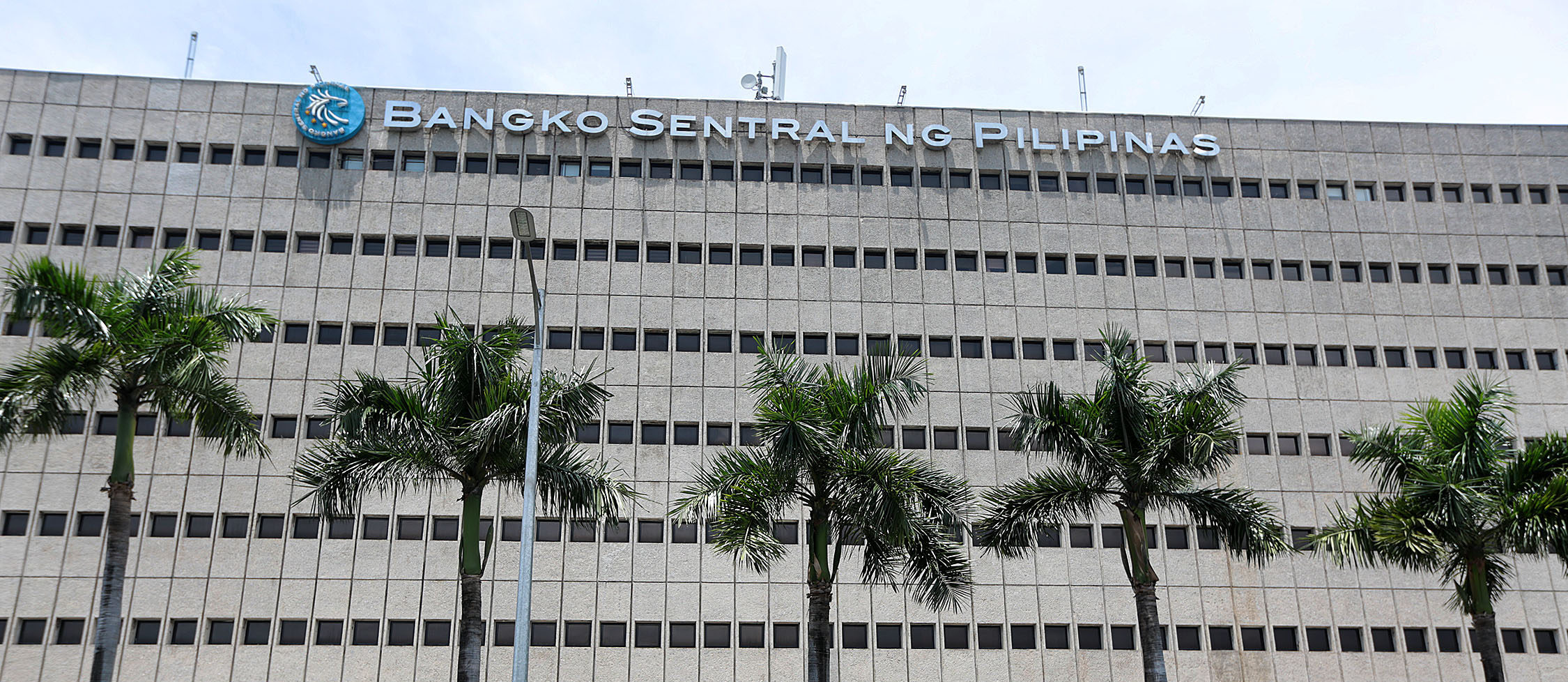
Bangko Sentral ng Pilipinas (BSP) INQUIRER PHOTO / GRIG C. MONTEGRANDE
With easing inflation, the Bangko Sentral ng Pilipinas is expected to further reduce borrowing costs when its policy-setting Monetary Board meets to discuss the monetary policy stance on June 20.
“We think that the central bank in the Philippines will cut interest rates for a second consecutive meeting on Thursday, despite a recent uptick in inflation in May,” London-based Capital Economics said in a June 14 report.
“Headline inflation rose to 3.2 percent year-on-year in May, from 3 percent in April. But this was entirely driven by temporary factors, which pushed up meat and vegetable price inflation. Rice prices continued to drop back and transport price inflation moderated, having rebounded in previous months,” Capital Economics noted.
“The upshot is that May’s inflation data are unlikely to deter the central bank. Indeed, the governor of the BSP recently said that further cuts are ‘inevitable,”’ Capital Economics said, referring to Governor Benjamin E. Diokno.
The government earlier attributed the uptick in May inflation to base effects as well as the impact of the prolonged dry spell due to the El Niño weather phenomenon on prices of food, beverages and agricultural products.
Headline inflation nonetheless averaged 3.6 percent during the first five months, within the government’s target range of 3-4 percent.
In May, the Monetary Board cut the policy rate by 25 basis points to 4.5 percent amid slowing inflation and robust economic growth.
Last year, the BSP raised key rates by a total of 175 basis points to 4.75 percent as the rate of increase in prices of basic commodities jumped to a 10-year high of 5.2 percent on the back of new or higher excise taxes slapped on consumption, elevated global oil prices and local food supply bottlenecks.
Meanwhile, first-quarter gross domestic product growth slid to a four-year low of 5.6 percent mainly as the government underspent on public goods and services at the start of the year due to the delayed implementation of the 2019 national budget.
Moving forward, Capital Economics said it expected “another [interest-rate] cut in the third quarter before the BSP pauses its easing cycle.”